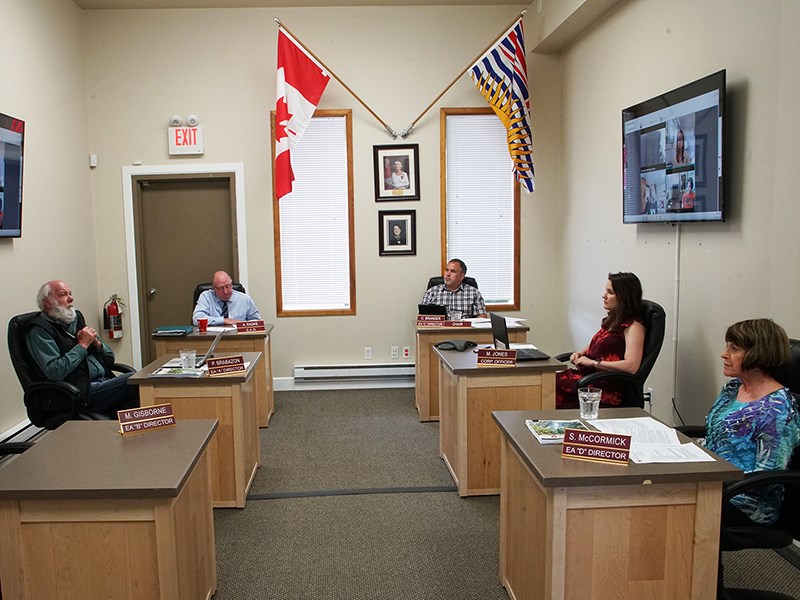qathet Regional District has been requested to oppose bottling of groundwater in its land-use bylaws, but it does not have the legislative framework in place to prohibit bottling.
At the June 9 planning committee meeting, directors reviewed correspondence from Bruce Gibbons, of the Merville Water Guardians on Vancouver Island, which encouraged directors to take action on his request to prohibit bottling of water in the regional district’s land-use bylaws, or by means of a water bottling policy.
“There are too many examples of large corporations prospecting for water, like they would prospect for gold,” Gibbons stated in his email. “Much of that water would be targeted for export to huge consumer markets around the world. Water is becoming far too critical to allow it to be bottled and sold for profit by a few corporations or individuals, while putting the water security of the people of your district at risk.”
Electoral Area D director Sandy McCormick said she believed there was a water bottling project in Electoral Area A.
Area A director Patrick Brabazon said there was at one time but that was not the case now.
The planning committee voted to receive the correspondence from Gibbons.
McCormick said the motion she would like the planning committee to put forward to the board is that the regional district discourage bottling of groundwater for drinking purposes. She said she’d like a comment from staff if it would be valuable to receive a report on the matter, or if it should be considered without a staff report.
Chief administrative officer Al Radke said he did not think the regional district had any mechanics to prohibit any bottling of water.
“We don’t have business licensing, which would be one of the key points to stop any of that from occurring,” said Radke. “The other point is we don’t have any land-use bylaws. We have, at best, spot zoning. Outside of amending the spot zone areas, I would suggest the rest of the regional district is free territory.”
Manager of planning services Laura Roddan said Radke was correct.
“We don’t have the tools to regulate water bottling licensing,” she added. “However, we have official community plans for each electoral area and in all of the official community plans (OCP) there are many policies that support the protection of drinking and potable water.
“Generally, the licensing of water is a provincial approving authority and any of those licences are referred to the regional district. They would be reviewed, and what’s in the OCP that supports the protection of water, that would give grounds to object to the application. However, there’s a lot of areas of the regional district that are nowhere close to residents or people drawing water for domestic use.”
Roddan said there could be the addition to the OCPs discouraging extraction of water for commercial purposes.
McCormick said she wondered if there was another way of approaching it. She said the regional district does not have business licensing per se, but maybe for that one industry, it might be required.
Radke said staff would have to investigate.
McCormick said she wouldn’t make a motion at this time but it is something she’d like to keep an eye on because water is so precious.



